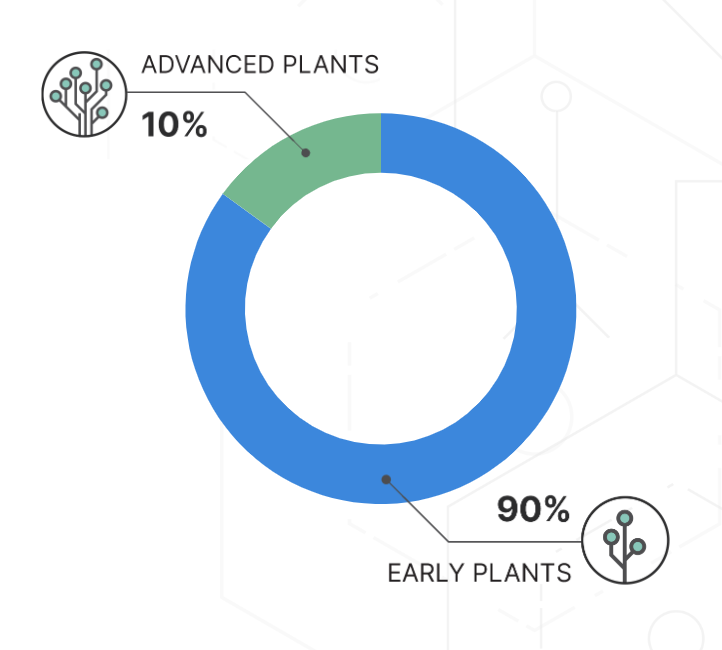Building High-Performance Teams in Manufacturing: The Strategic Power of Skills Inventory
In today’s fast-paced industrial landscape, building high-performing manufacturing teams is no longer optional—it’s a strategic necessity. As technologies evolve and production demands shift, having a well-managed skills inventory in manufacturing becomes critical for aligning workforce capabilities with operational goals. Through targeted upskilling manufacturing strategies, leaders can ensure their teams remain agile, efficient, and ready to meet the challenges of modern manufacturing.
🔑 Key Takeaways
- A well-structured skills inventory in manufacturing is essential for aligning employee capabilities with evolving operational needs.
- Building high-performing manufacturing teams requires both technical depth and collaborative role orchestration.
- Ongoing upskilling manufacturing strategies are key to achieving long-term agility, quality, and productivity.
Manufacturing leaders are increasingly recognizing that sustainable success hinges on continuous manufacturing workforce development. But how do you effectively identify, grow, and apply the capabilities your teams need to thrive? Let’s explore how skills inventories, strategic role design, and ongoing upskilling manufacturing strategies can unlock the full potential of your workforce.
What Is a Skills Inventory in Manufacturing—and Why Is It So Important?
At its core, a skills inventory in manufacturing is a comprehensive record of employee competencies, certifications, and experience. While it may seem like a basic HR function—cataloging skills and filling training gaps—it’s far more impactful when executed strategically.
In actual manufacturing environments, creating a dynamic, evolving skills inventory is key to aligning talent with operational objectives. It’s not about completing a list—it’s about understanding what high performance truly requires and bridging the gap between team capacity and production demands.
The Hidden Complexity of Identifying Skills
A major challenge in manufacturing is that skill gaps often reveal themselves only after issues arise—through breakdowns, delays, or inefficiencies. This reactive approach is costly.
Instead, high-performing manufacturing teams are built through a proactive, ongoing assessment of what your workforce is doing, what they should be doing, and what new capabilities will soon be required. This process demands input from all levels: operators, technicians, engineers, and supervisors.
Developing an accurate skills inventory in manufacturing must be collaborative—not dictated from the top. Those closest to the production line offer the best insight into both current strengths and future needs.
Beyond Operational Skills: Building Holistic Expertise
Too often, organizations narrowly focus on task-based skills like equipment operation or assembly processes. But high-performing manufacturing teams require a blend of technical, analytical, and cross-functional capabilities.
Key competencies may include:
- Mechanical diagnostics and preventive maintenance
- Quality control and assurance
- Health, safety, and compliance standards
- Digital tools and industrial automation
For example, lubrication isn’t just a routine task—it’s a certified, precision skill that affects machine health and operational flow. Investing in such depth through thoughtful upskilling manufacturing strategies ensures agility and resilience.
The Leader’s Role in Manufacturing Workforce Development
Leaders must act as enablers of capability. This means clearly defining role requirements, aligning them with production goals, facilitating targeted learning paths, and validating readiness through structured qualification.
This leadership responsibility isn’t one-and-done—it’s continuous. Effective upskilling manufacturing strategies position your workforce to meet evolving demands with confidence and skill. Leaders who champion capability building consistently outperform those who rely only on systems or automation.
Leveraging Digital Tools for Skills Mapping
Modern digital platforms are revolutionizing how manufacturers manage their skills inventory. These tools offer real-time mapping of team capabilities, gap analysis, and automated training recommendations aligned with future production needs.
They also simplify qualification tracking, enable self-guided learning, and reduce the complexity of workforce planning. With data-driven insight, leaders can build high-performing manufacturing teams that are as smart as they are skilled.
Orchestrating Roles for Maximum Performance
Even a talented team can falter if roles are unclear or misaligned. High-performing manufacturing teams thrive on effective role orchestration—ensuring each member's duties are well-defined, interdependent, and supportive of workflow continuity.
Smart role design includes skill overlap to allow rotations and limit downtime. When teams operate in sync, they solve problems faster, maintain morale, and meet targets more consistently. This harmony drives long-term performance.
Certification, Qualification, and Accountability
Once roles and training plans are in place, formal qualifications are critical. They ensure employees meet defined standards, follow safety procedures, and are ready to contribute at a high level.
Certification shouldn't be a formality—it’s part of creating a culture of accountability and continuous growth. It also gives managers visibility into who’s ready for advancement and who might benefit from further upskilling manufacturing strategies.
Action Steps for Manufacturing Leaders
To start building high-performing manufacturing teams, follow this roadmap:
- Assess and engage: Partner with your workforce to identify current and needed skills.
- Design roles: Align job definitions with operational objectives.
- Train and qualify: Develop structured learning programs with clear certifications.
- Leverage tech: Use digital tools to manage your skills inventory in manufacturing.
Final Thoughts: Skill Is the Center of Success
In manufacturing, skill is what drives performance, innovation, and safety. But skills don’t evolve by accident—they require leadership, planning, and the right strategy.
By embracing a forward-looking approach to skills inventory in manufacturing, collaborative role design, and robust upskilling manufacturing strategies, leaders can build teams that consistently outperform. Whether you're pursuing lean transformation, implementing new tech, or reducing unplanned downtime, one thing remains true:
success starts with the right skills, in the right place, at the right time.
Now is the time to make your competitive edge.
 | Discover Untapped Potential in Your Manufacturing ProcessPrepare, define, and execute Industry 4.0 strategies at scale.
|
You might also enjoy:






